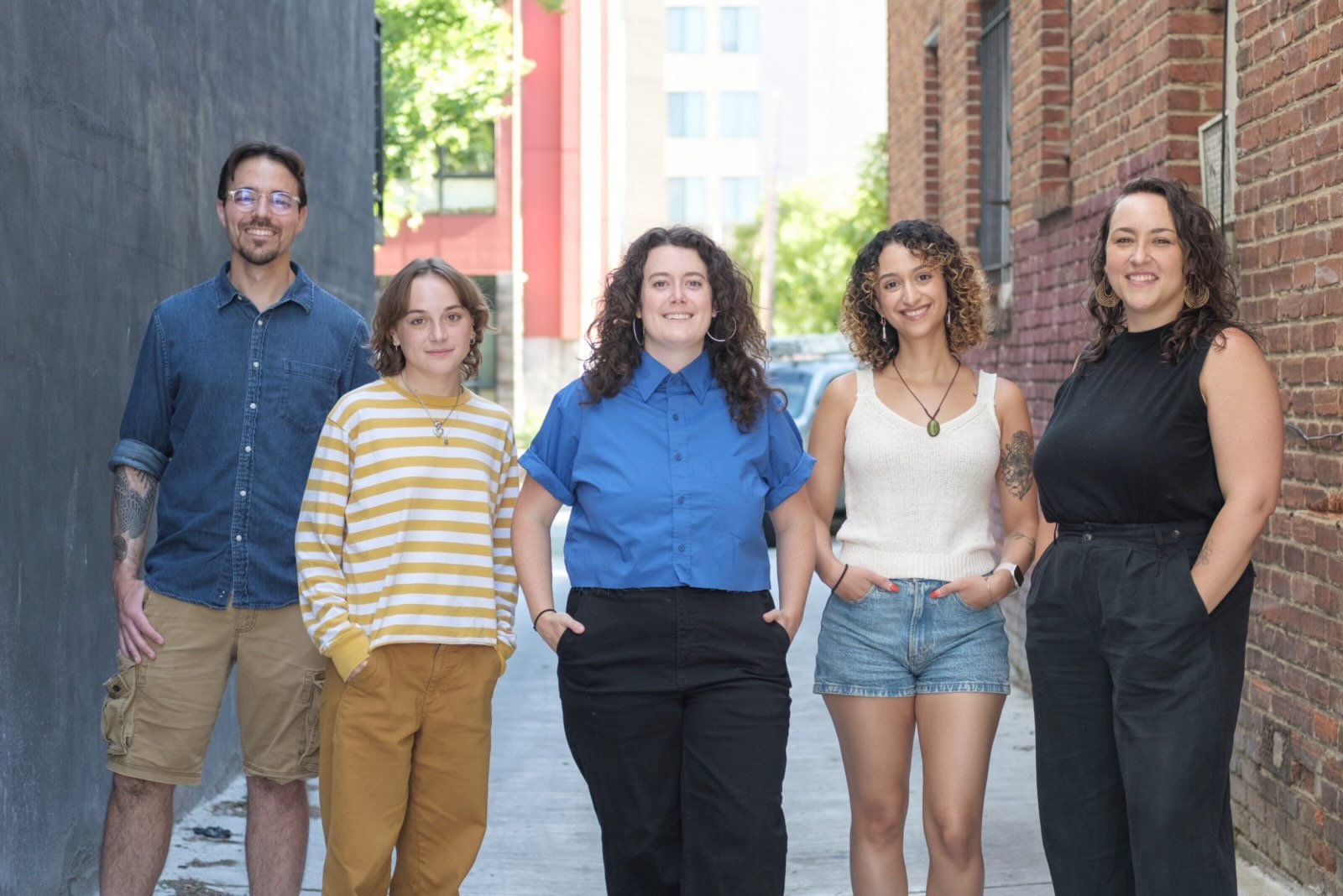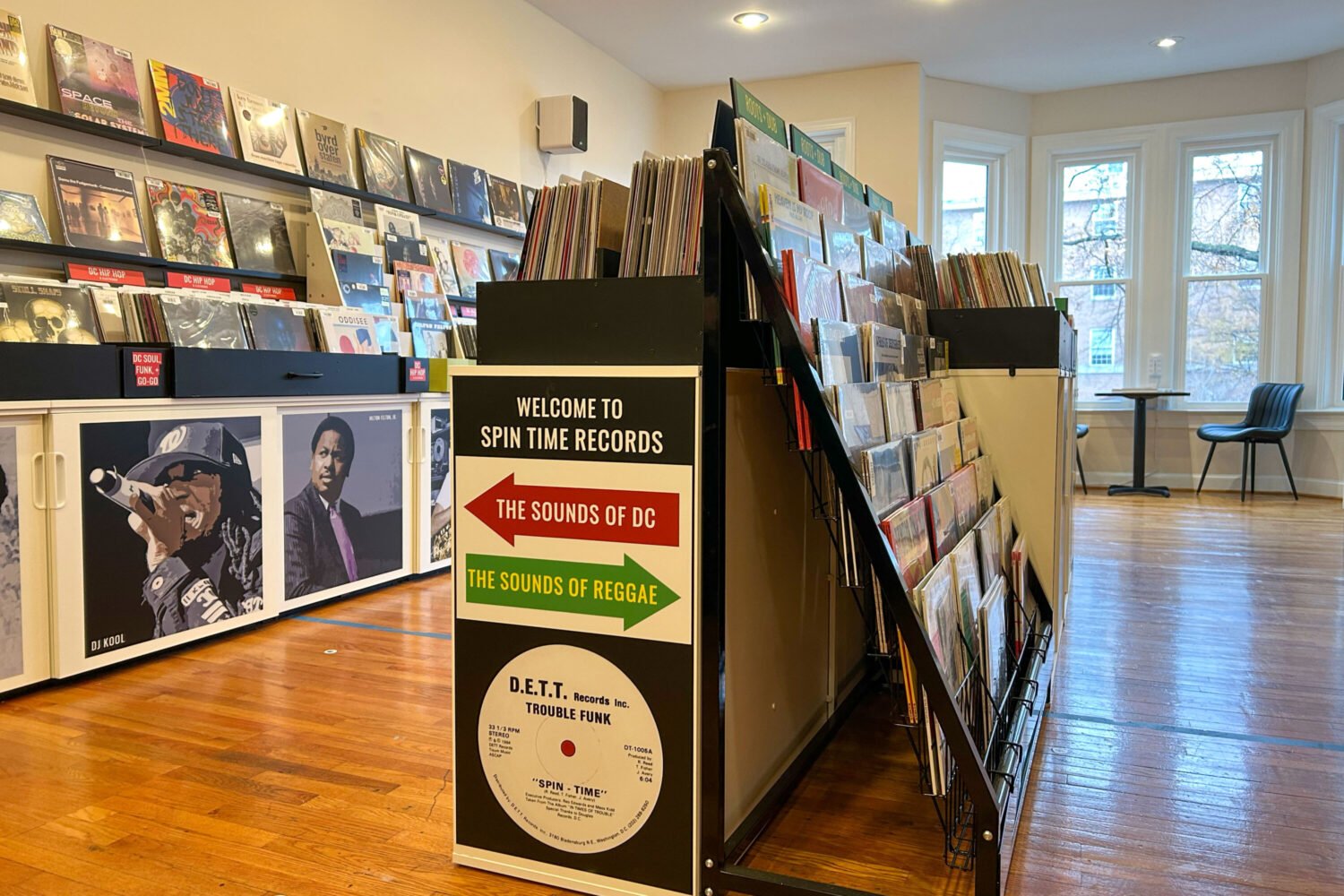On Tuesday morning, six former DCist and WAMU employees announced their plans to debut a nonprofit publication called the 51st. They hoped to raise $250,000 by sometime this fall, when they hope to get the new organization up and running. But by Wednesday around lunchtime, they’d already raised more than half that amount—an indication, perhaps, of the void left in local news after WAMU abruptly shuttered the beloved publication and laid off 16 people earlier this year.
Despite its starting lineup’s provenance, the 51st won’t resemble DCist much, says Natalie Delgadillo, who was DCist’s managing editor until this February. For starters, it plans to deliver news—at least at first—via a weekly email newsletter rather than a high-tempo blog. The news organization will also be “worker-led,” which means “we don’t have a C-suite or a bunch of executives who are making decisions about the future of the newsroom or about coverage areas,” says Abigail Higgins, a former editor for DCist and WAMU. “The people who are creating the news are doing that.”
The 51st will cover subjects like the cost of living in DC, particularly housing and food, Higgins says, but it will also do service journalism and write the kind of “talkers” that often made DCist articles a fixture around area water coolers. The newsletter will boast one or two deeply reported stories, Delgadillo says, plus events roundups and a couple of stories that Higgins says they hope will make readers think, “Oh, that is such a DC story.”
And yes, as the site’s name suggests—it’s a reference to the long-simmering hope that DC could become a state—the publication will mostly focus on the District, though Delgadillo says the borders between DC and its surrounding jurisdictions are “very much an artificial line in a lot of ways.”
On a Zoom call with Washingtonian, Delgadillo, Higgins, and three more of the 51st’s six cofounders said that before the publication launches, they want to do a lot more community engagement. “We, on purpose, wanted to take a pause and really make efforts to listen to the community and get to know what matters to them, what do they need, what are the stories that they’re missing,” says Teresa Frontado, who was DCist and WAMU’s executive editor. “This is something that we want to do with the community. It’s not something that is going to only come up out of our six collective minds.”
Okay, but how? First up, they say, are planned appearances at farmers markets around town this month, beginning this Saturday at the Ward 8 Farmers Market. They plan to canvas potential readers and identify potential “community information organizers” who they hope to hire to help the small group make inroads into DC’s neighborhoods. More important, Frontado says, will be regular listening sessions after the 51st publishes stories: “We don’t see this process as just publishing and that’s it,” she says.
Some ideas include distributing stories via WhatsApp or even printouts, but whatever form these efforts take, having a “reciprocal relationship” with local communities is an animating principle for the 51st.
The site won’t have a top editor or traditional masthead, at least not at first, says Delgadillo. Everyone will write and edit to their strengths, and some of the (still volunteer) staff will focus on how to pay for this journalism. They’re keenly aware that the $250,000 they hope to raise won’t pay a lot of salaries, and that they’ll have to figure out very quickly how to build a sustainable site.
Maddie Poore, who ran DCist’s membership program, and Eric Falquero, who was WAMU’s former “partnerships editor” and found philanthropic funding for some of the publication’s beats, say they’ve written a business plan and that Falquero has built a budget for the site through the end of next year. They say they have concrete plans to set up ways for readers to make recurring donations and to explore getting funding—perhaps from the rising number of nonprofits dedicated to financial support of local news sites. “We don’t have a single person in charge of money,” Falquero says, “but through our worker-led model, we are all taking a leadership role in making those decisions.”
While the 51st will run on community support, it won’t have a paywall. “It will be freely accessible,” says Falquero. “But we are going to need as many people as possible to see that value and help us sustain it.”
DCist had a thriving, if frequently bonkers commenting community—dating back to its days as an independent blog—before WAMU bought the site in 2018. The public radio outlet shut down its comments section in 2022, citing the time it took to moderate all that user-generated content. Could comments be a part of the 51st? That’s still up in the air, says Higgins: “We are really trying to think creatively about how can we have community conversations and how can we have readers talking to each other and talking to us, while avoiding the extremely toxic spaces that we’ve all kind of been shunted into by the modern realities of technology.”
“Every member of the commentariat”—the name regular DCist commenters gave themselves—”is sure to be eager to start commenting,” says Delgadillo. Reached via text message, Monkeyrotica, perhaps the commentariat’s most recognizable member, says he’d be surprised if comments returned, but “I’m looking forward to reading in any case.”




















